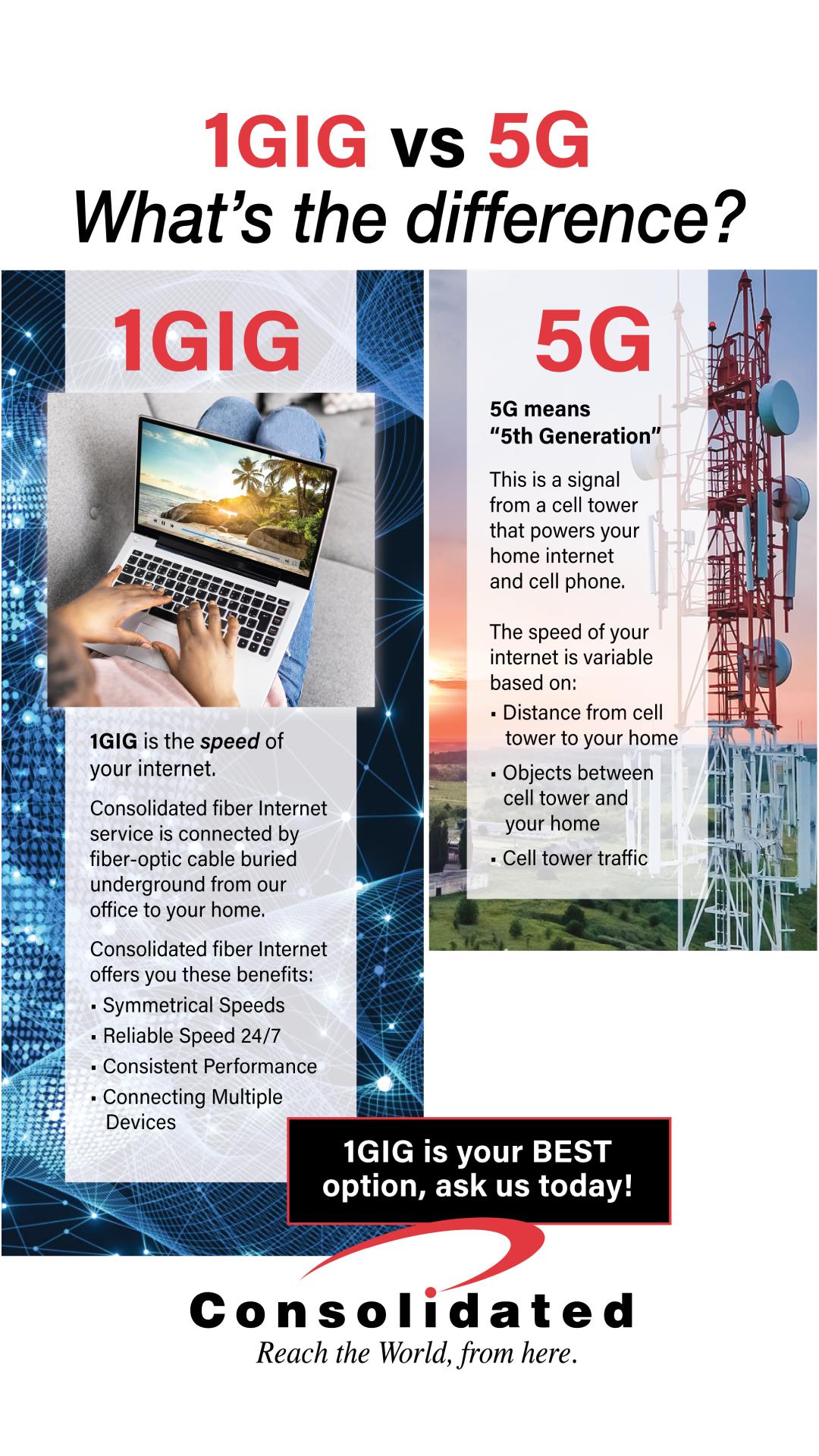1 GIG CONSOLIDATED FIBER INTERNET VS 5G HOME INTERNET
Consolidated’s 1 GIG internet is provided by a coaxial or fiber optic cable that provides consistent performance and is less vulnerable to signal interference than a wireless connection. Fixed Wireless Access (FWA), also called 5G home internet is a wireless technology. 5G signals are radio frequencies transmitted over the air, so data transmissions are less consistent than a wired connection.
5G means 5th Generation NOT 5 Gig!
Understanding the terms:
1 Gig internet. The term “1 Gig” refers to internet service that offers up to 1 gigabit per second (Gbps) internet speed. 1 Gig is equal to 1,000 megabits per second (Mbps).
5G Networks. 5G stands for “fifth generation” and is the latest standard for mobile networks. Unlike 1 Gig internet, which is primarily focused on providing high speed broadband to fixed locations (like homes and offices), 5G is designed to offer faster, more reliable connectivity to mobile devices.
Key Differences
While the Consolidated 1 Gig network is coaxial or fiber cable that runs directly to your home or office, the 5G network is a wireless solution. The 5G speeds can be variable based on many things, including the following:
*5G is line of sight- trees, buildings, or other obstacles can slow or interrupt connection.
*The distance from the cell tower affects the quality and speed of the connection
*Tower traffic- meaning at peak times, your internet will likely be slower because the tower is close to capacity
*5G does not penetrate some surfaces well, example…may not work well behind steel siding or modern windows
*Metered plans- unlimited, but internet may be slower at and after a certain level of usage
In contrast, Consolidated fiber internet offers:
*CONSISTENT speed and performance with multiple devices
*Reliable 24/7 connectivity and speed
*Higher download at peak times (no tower traffic to slow speed)
*Symmetric speeds
*No obstruction worries (trees, buildings, etc)
Conclusion
While 1 Gig internet and 5G networks might seem similar at a glance, their differences are vast, impacting their use cases, performance, and the future of connectivity. As we continue to navigate through the digital age, understanding these distinctions becomes important when choosing the right technology to meet our needs. Whether it's the unparalleled speed and reliability of 1 Gig fiber internet for stationary use or the flexible, cutting-edge potential of 5G for mobile devices, both technologies are paving the way for a more connected future.



